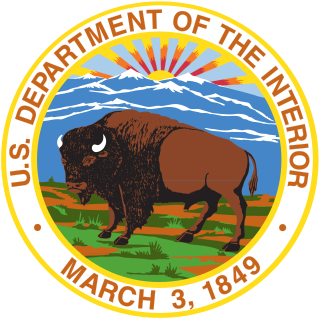
The United States Department of the Interior (DOI) is an executive department of the U.S. federal government responsible for the management and conservation of most federal lands and natural resources. It also administers programs relating to Native Americans, Alaska Natives, Native Hawaiians, territorial affairs, and insular areas of the United States, as well as programs related to historic preservation. About 75% of federal public land is managed by the department, with most of the remainder managed by the Department of Agriculture's Forest Service. The department was created on March 3, 1849. It is headquartered at the Main Interior Building, located at 1849 C Street NW in Washington, D.C.

The Bureau of Reclamation, formerly the United States Reclamation Service, is a federal agency under the U.S. Department of the Interior, which oversees water resource management, specifically as it applies to the oversight and operation of the diversion, delivery, and storage projects that it has built throughout the western United States for irrigation, water supply, and attendant hydroelectric power generation. It is currently the U.S.'s largest wholesaler of water, bringing water to more than 31 million people, and providing one in five Western farmers with irrigation water for 10 million acres of farmland, which produce 60% of the nation's vegetables and 25% of its fruits and nuts. The Bureau is also the second largest producer of hydroelectric power in the western U.S.

Dirk Arthur Kempthorne is an American politician who served as the 49th United States Secretary of the Interior from 2006 to 2009 under President George W. Bush. A member of the Republican Party, he previously served as a United States Senator from Idaho from 1993 to 1999 and the 30th governor of Idaho from 1999 to 2006.

Water resources law is the field of law dealing with the ownership, control, and use of water as a resource. It is most closely related to property law, and is distinct from laws governing water quality.

The Colorado River Compact is a 1922 agreement that regulates water distribution among seven states in the southwestern United States. The contract is about the area within the drainage basin of the Colorado River.
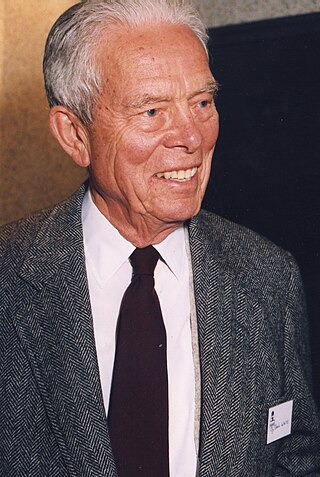
Gilbert Fowler White was a prominent American geographer, sometimes termed the "father of floodplain management" and the "leading environmental geographer of the 20th century". White is known predominantly for his work on natural hazards, particularly flooding, and the importance of sound water management in contemporary society.
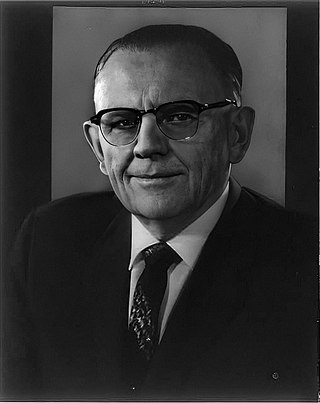
Wayne Norviel Aspinall was an American lawyer and politician from Colorado. He is largely known for his tenure in the United States House of Representatives, serving twelve terms as a Democrat from 1949 to 1973 from Colorado's Fourth District. Aspinall became known for his direction of the House Interior and Insular Affairs Committee, of which he was the chairman from 1959 to 1973. Aspinall focused the majority of his efforts on Western land and water issues.
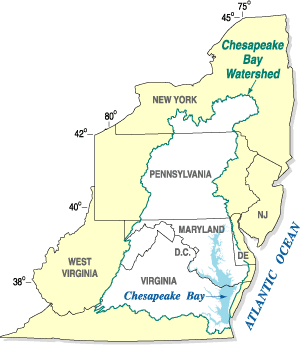
The Chesapeake Bay Program is the regional partnership that directs and conducts the restoration of the Chesapeake Bay in the United States. As a partnership, the Chesapeake Bay Program brings together members of various state, federal, academic and local watershed organizations to build and adopt policies that support Chesapeake Bay restoration. By combining the resources and unique strengths of each individual organization, the Chesapeake Bay Program is able to follow a unified plan for restoration. The program office is located in Annapolis, Maryland.
Frederic A. "Eric" Eidsness Jr. is an American politician and engineer.

The Environmental Science Services Administration (ESSA) was a United States Federal executive agency created in 1965 as part of a reorganization of the United States Department of Commerce. Its mission was to unify and oversee the meteorological, climatological, hydrographic, and geodetic operations of the United States. It operated until 1970, when it was replaced by the new National Oceanic and Atmospheric Administration (NOAA).
Founded in 1964, the American Water Resources Association (AWRA) is a multidisciplinary not-for-profit professional association dedicated to the advancement of individuals in water resources management, research, and education. With more than 2,000 members, AWRA is the pre-eminent multidisciplinary U.S. organization in the field. AWRA’s membership includes engineers, educators, foresters, biologists, ecologists, geographers, managers, regulators, hydrologists, hydro-geologists, attorneys, economists, and water policy specialists. AWRA organizes conferences, publishes the peer-reviewed Journal of the American Water Resources Association (J AWRA), the Water Resources IMPACT magazine, and sponsors various member committees, State Sections and Student Chapters.
Water resources management is a significant challenge for Mexico. The country has in place a system of water resources management that includes both central (federal) and decentralized institutions. Furthermore, water management is imposing a heavy cost to the economy.
Water resources management is a key element of Brazil's strategy to promote sustainable growth and a more equitable and inclusive society. Brazil's achievements over the past 70 years have been closely linked to the development of hydraulic infrastructure for hydroelectric power generation and just recently to the development of irrigation infrastructure, especially in the Northeast region.
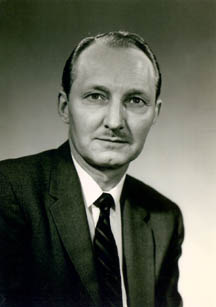
Phillip Oliver Foss an American political scientist, was born in Maxbass, North Dakota to Oliver Foss and Petra Elton Foss and died in Fort Collins, Colorado. He was a decorated veteran of World War II and the Korean War; was employed in public service with the U.S. Department of the Interior; helped establish the doctoral program in Environmental Politics and Policy at Colorado State University; published numerous scholarly books, research monographs, journal articles and chapters in anthologies; served as a consultant to government agencies, and received numerous awards and honors, including listings in both Who’s Who in America and Who’s Who in the World.

Norman Irving Wengert was an American political scientist who wrote about the politics of natural resources, advanced a seminal theory of the "politics of getting", and had a number of significant roles in his public and academic career. He was born in Milwaukee, Wisconsin to Eugene F. and Lydia Semmann Wengert. He pioneered the revival of the study of political economy in the United States with publication of Natural Resources and the Political Struggle, and later authored more than fifty monographs and studies on the political economy and public administration of environmental resources. His scholarship explored the politics of natural resources and environmental policy formation and administration, with emphases in national energy policy, urban water planning and management, land use planning and controls, national forest management, and citizen participation in administrative processes.

The California State Water Resources Control Board (SWRCB) is one of six branches of the California Environmental Protection Agency.
The Wyoming Department of Environmental Quality (DEQ) founded in 1973, is a Wyoming state agency to protect, conserve and enhance the environment of Wyoming "through a combination of monitoring, permitting, inspection, enforcement and restoration/remediation activities". It consists of 6 divisions and since 1992, the Environmental Quality Council (EQC), a separate operating agency of 7 governor-appointed members.
Carol Collier is a Fellow of the American Institute of Certified Planners and Fellow in the American Water Resources Association. She practices and teaches in the Delaware Valley, Pennsylvania, United States. A Certified Senior Ecologist, she specializes in watershed management and resilient systems design. She is a faculty member in the Department of Biodiversity, Earth & Environmental Science at Drexel University. Professionally, she serves as an educator, planner, and advocate.











